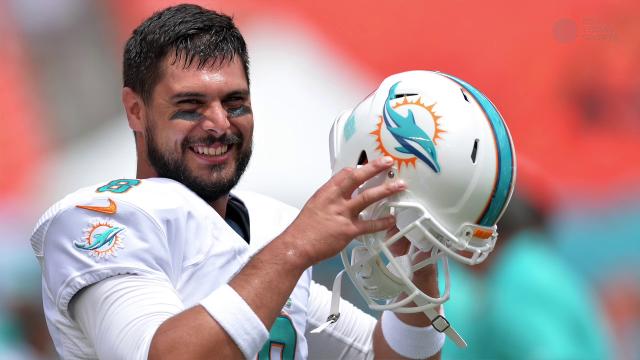Bell: HGH testing should finally close NFL loophole
Cheaters beware. After more than three years of stalling and setbacks, the long-overdue testing of NFL players for HGH is just around the corner.
With the NFL and its players union completing the revised drug policy last week, the random blood testing of players could begin as early as Wednesday. The loophole facilitating the use of performance-enhancing drugs is about to close. Finally.
We don't know the extent of the use of HGH in the NFL, but this much we know for sure — the jig is up.
Too bad there's not a lab test that can detect HGH use that goes back to summer 2011, when Commissioner Roger Goodell and union chief DeMaurice Smith stood on the steps at the Pro Football Hall of Fame in Canton, Ohio, and trumpeted how the league — with its then-new labor deal — had become the first U.S. pro sports entity with HGH testing.
"Let's hope it is for real this time and not just another rope-a-dope," Travis Tygart, CEO of the U.S. Anti-Doping Agency, told Paste BN Sports this week. "The clean athletes in the league deserve it."
The HGH agreement has flown under the radar, with all of the drama with the Ray Rice and Adrian Peterson cases leading to immense heat on Goodell.
Even when the sides agreed on the policy — which deals with one set of rules for substance abuse issues and another for performance-enhancers such as HGH — headlines focused more on reduced suspensions of players such as Wes Welker, who tested positive for a banned amphetamine now classified as a substance abuse violation.
But it looms as critical enough, and the backbone of the agreement could face additional tests with a key provision allowing the NFL Players Association to challenge the science behind positive tests.
Then again, those altered suspensions — applying punishment under the new policy rather than the old one — represented the spark that finally allowed the sides to strike a deal.
With the status of key players in limbo, the NFLPA appeared to be more willing to make a deal. And the NFL was more willing to compromise.
In the stronger alcohol policy, for instance, the league pushed for immediate discipline for players arrested on DUI charges. Players wouldn't go for that.
Eric Reid, the San Francisco 49ers safety and union rep, explained to me a concern regarding the gray area that exists when police make on-the-spot judgments in suspecting a violation — which might or might not hold up in court.
So it's the basic due process principle. Also, with more than 70% of players in the NFL African-American, racial profiling — intentional or not — can be a factor.
Still, the policy is stronger with a two-game suspension for the first DUI conviction or plea deal.

The NFL, meanwhile, retained Goodell's authority to discipline players without a positive drug test, such as for a violation of law. Players, though, still have the right to appeal.
Discipline without a positive test was the scenario underlining the downfall of baseball star Alex Rodriguez. Smith has pointed to that case to support the desire to strip power from Goodell.
It makes you wonder: Without HGH testing, what prevented any number of cheaters on the Rodriguez level in the NFL?
"I think your head's in the sand to not realize the potential, when you think of the temptations with no chance of getting caught and the existence of a performance-enhancing element," Tygart said. "The temptations are huge."
To this point, though, there's no hard evidence to indicate what percentage of NFL players might use HGH, which builds muscle mass and aids in quicker recovery.
Last year, the Milwaukee Journal-Sentinel quoted an anonymous NFC player who estimated there were "10 to 15" players using performance-enhancing drugs on each NFL team.
Tygart sees studies that indicate a rise in the use of performance-enhancing drugs among youth athletes and hopes the NFL's new policy is a game-changer.
"There's been a lack of leadership in this area," he said. "Of course that's going to trickle down."
Follow columnist Jarrett Bell on Twitter @JarrettBell.